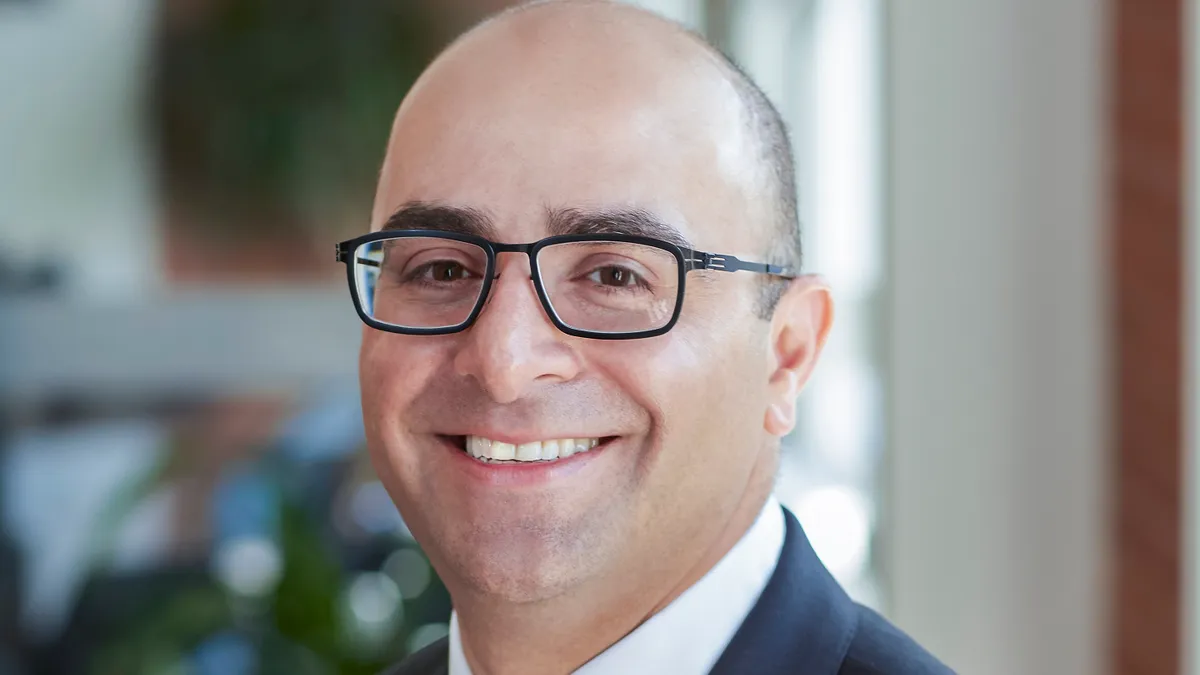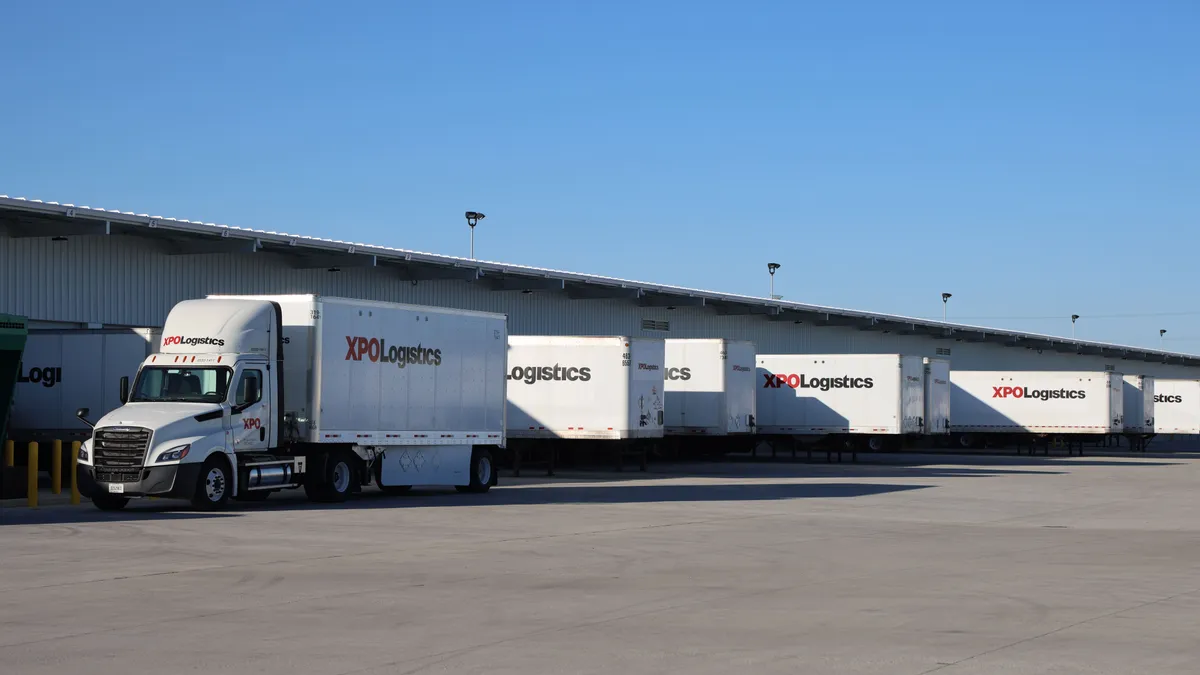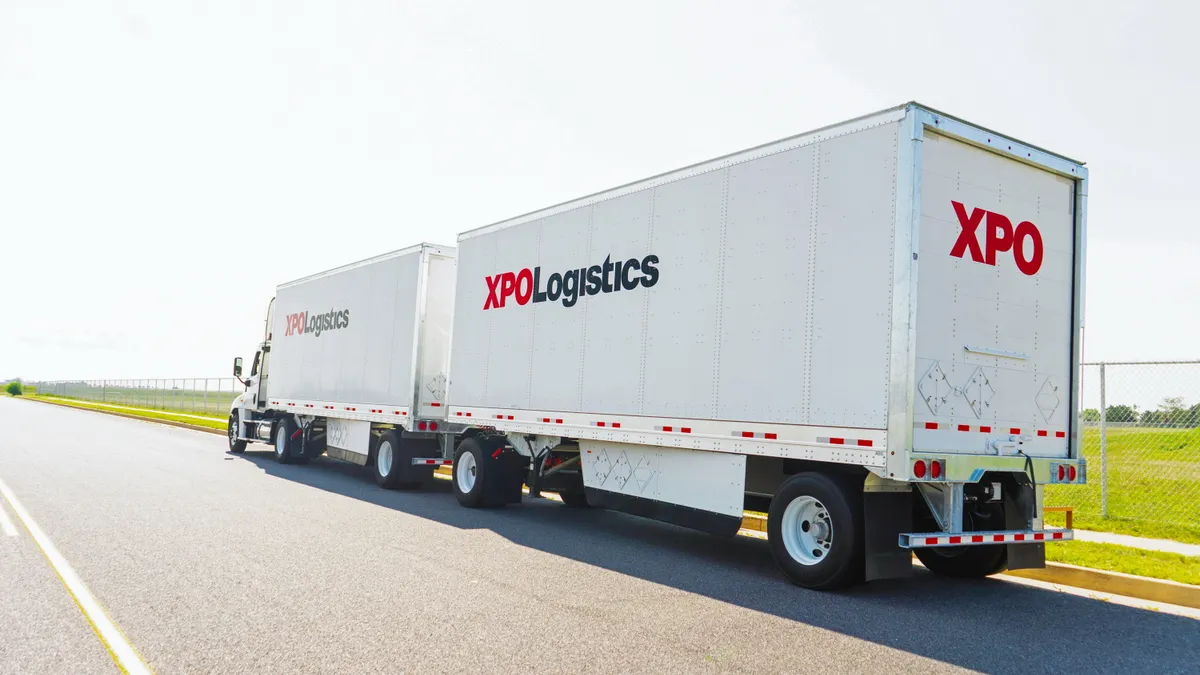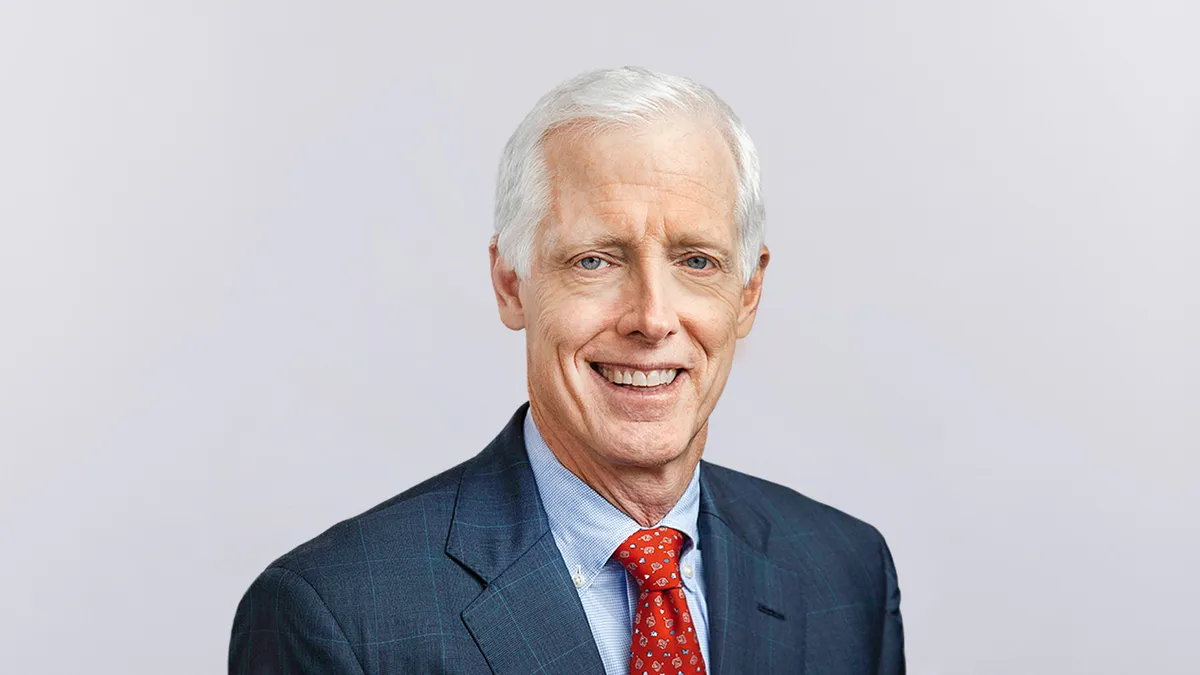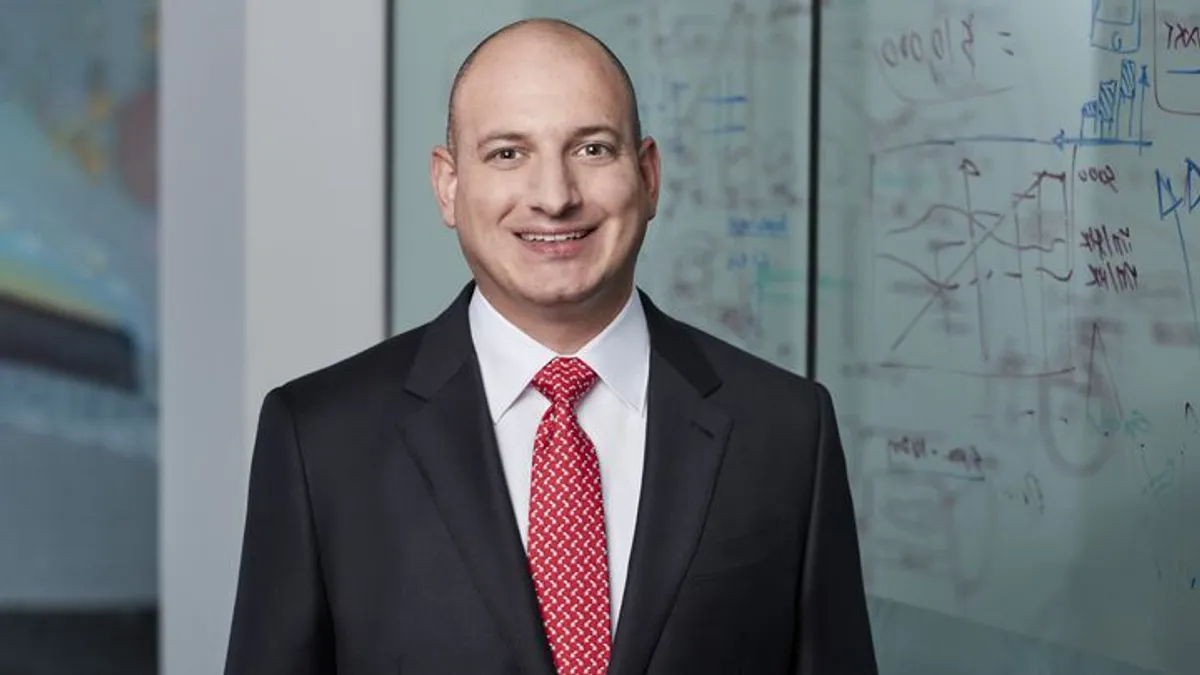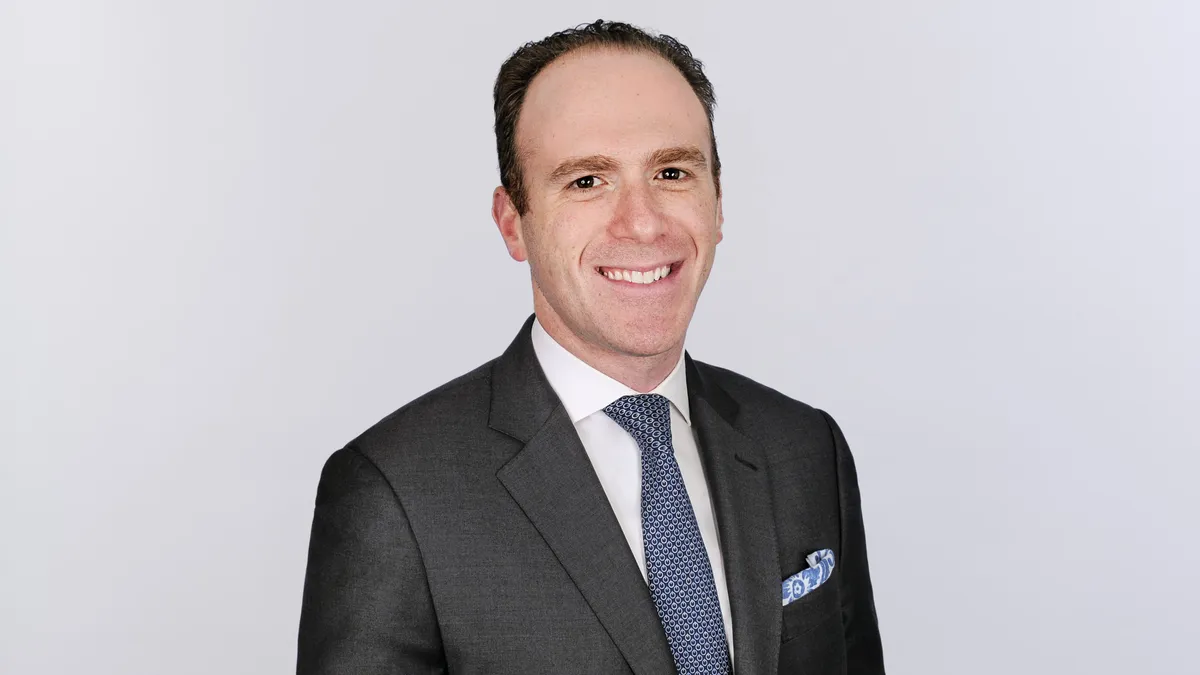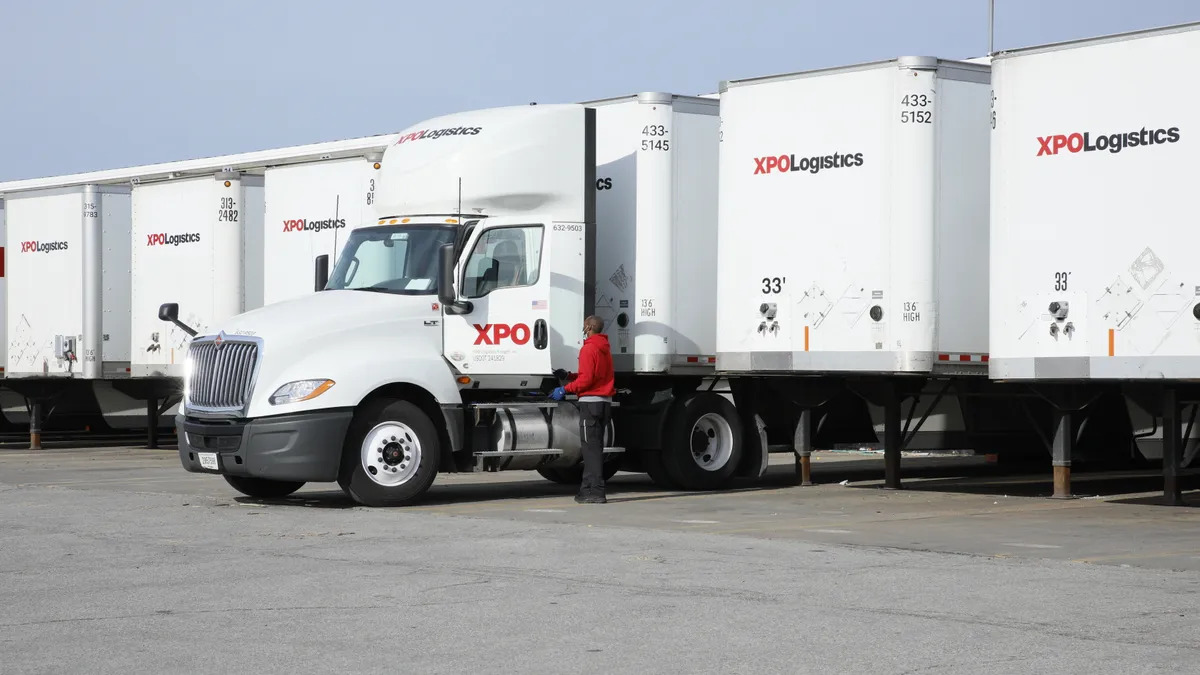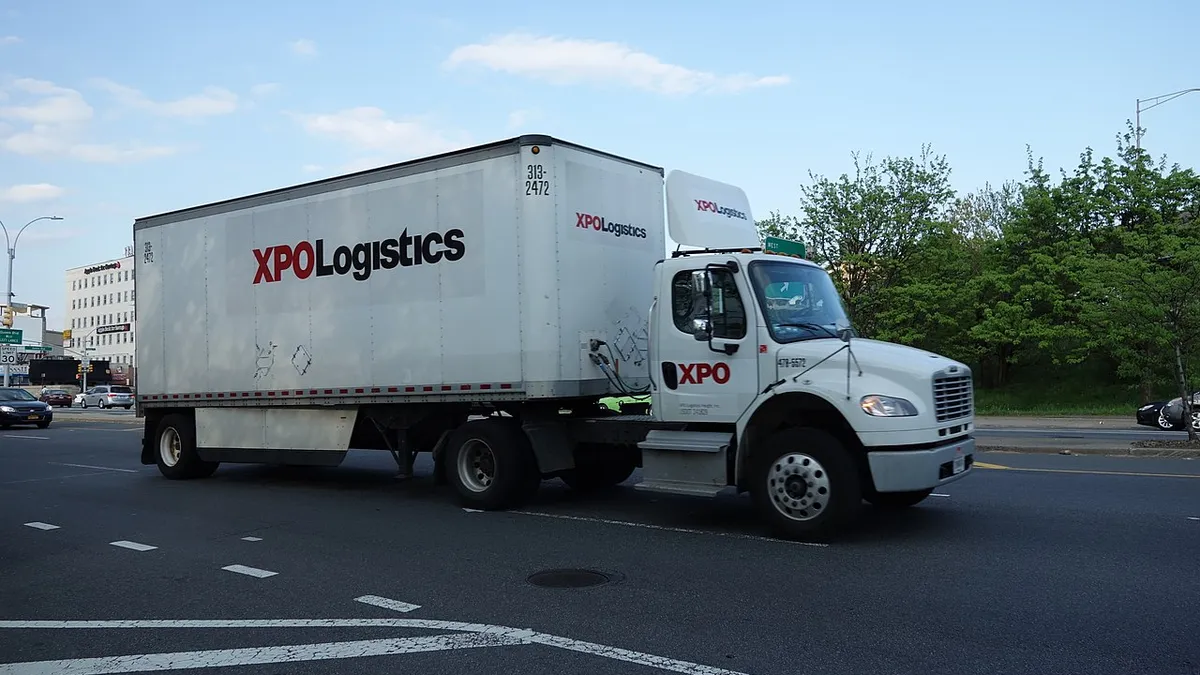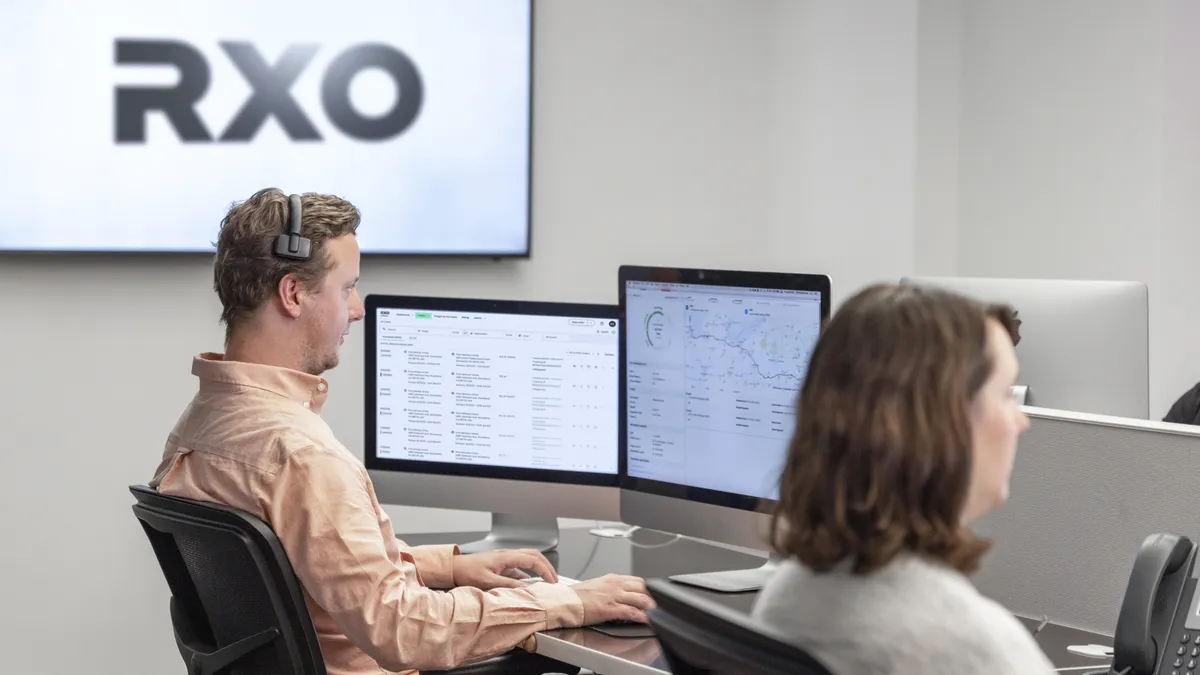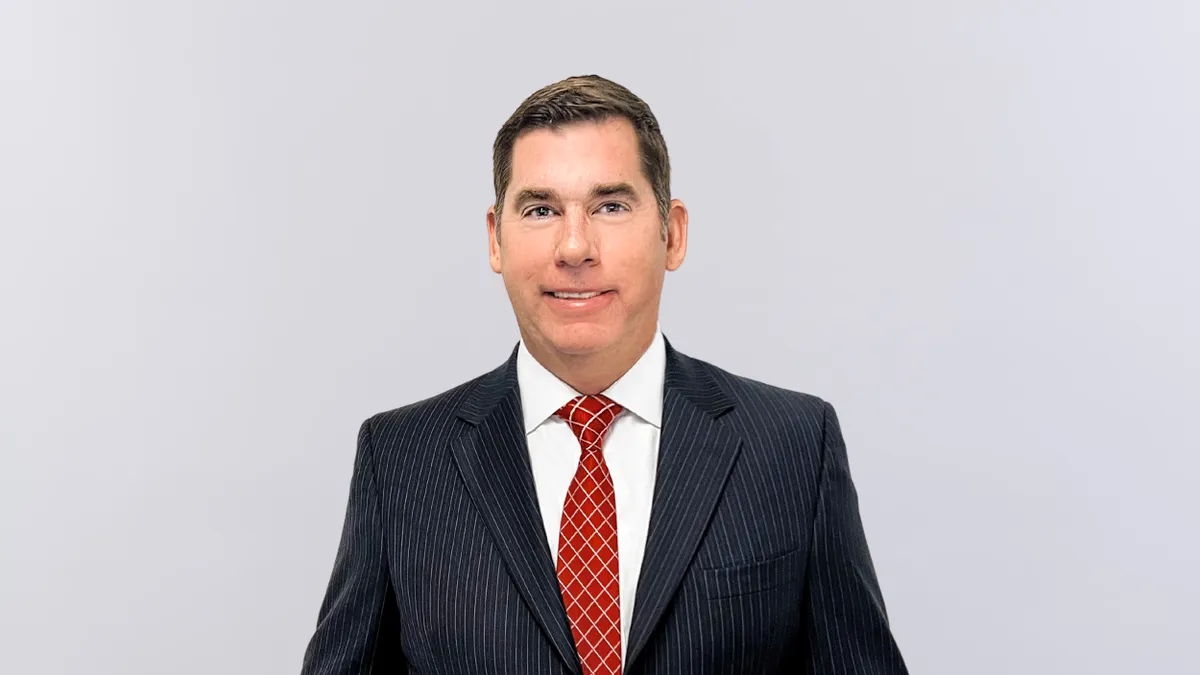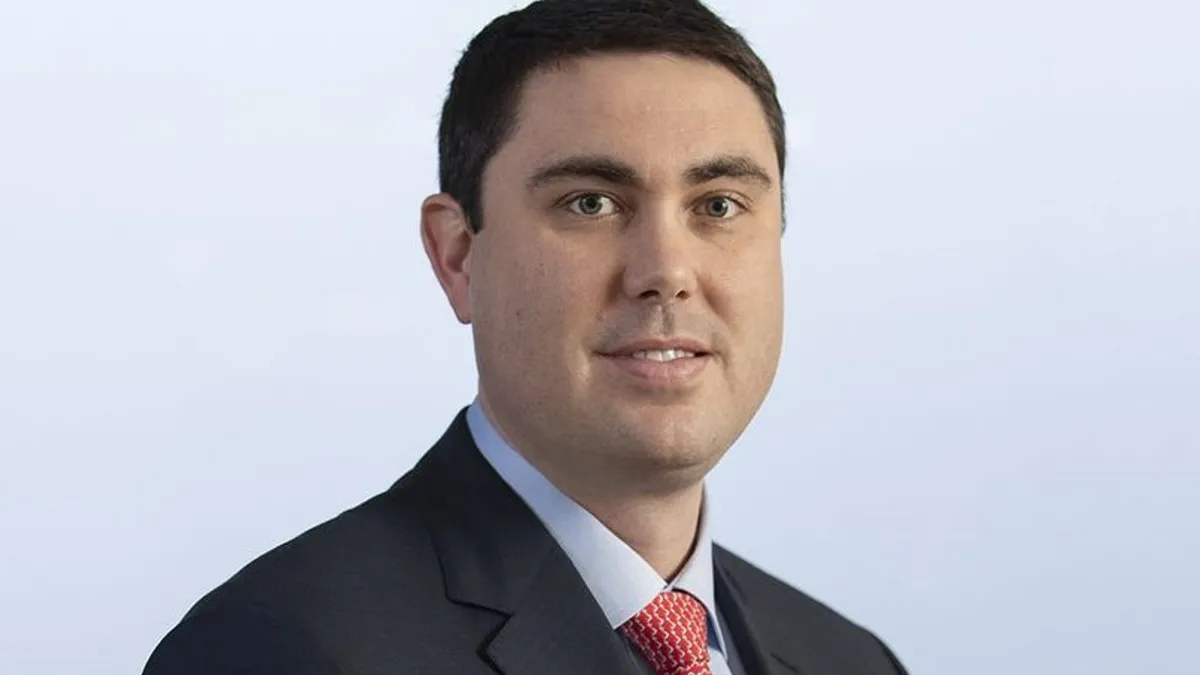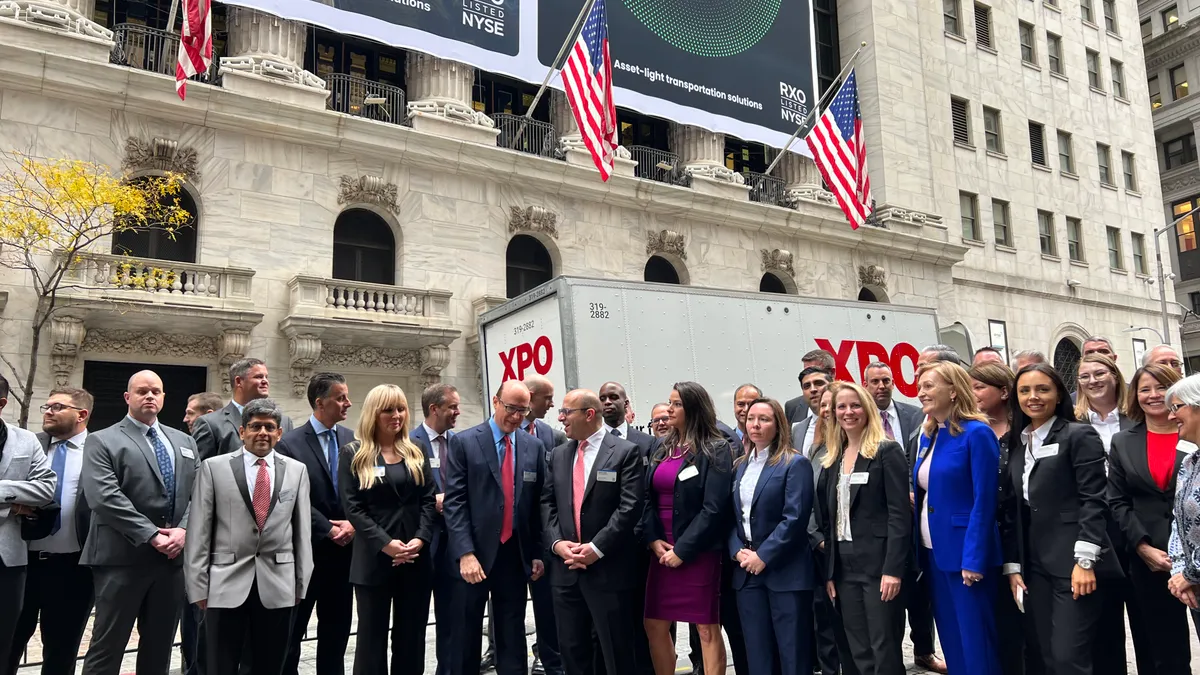XPO Logistics, which grew into an industry giant over the last decade through strategic acquisitions, is bucking the carrier trend of diversifying services to improve resilience.
The planned Nov. 1 spinoff of XPO’s brokerage business, RXO, and sale of its European business will render the carrier a pure-play LTL. Mario Harik, who will become XPO’s CEO following the split, said the simplified business model will offer operational and financial advantages to the two companies.
“These companies would be able to serve customers and pursue growth strategies that are specific to each of those businesses,” Harik said.
Speaking to Transport Dive via video call on Wednesday, Harik shared more details on the plans for next month's spinoff and XPO’s pure-play strategy.
Editor’s note: This interview has been condensed for clarity.
TRANSPORT DIVE: What are the advantages of operating as a pure-play LTL business?
MARIO HARIK: Each of the distinct companies — RXO as a tech-enabled brokerage platform and XPO as a pure-play, North American LTL company — will be more focused and fit-for-purpose.
Each company will have a simplified business model and concrete competitive advantages, which include proprietary technology. Each business has its own technology platform, which will continue to be a very good competitive advantage for each one of the businesses.
There's also an investor benefit, where the spinoff is going to be key to accelerating value creation for shareholders of both companies. By creating two pure-plays, we can eliminate the conglomerate discount, despite the strong performance we have in each of the segments, and it will be easier for our investors to understand and value our businesses separately. And both will be leaders in in growing industries. Regardless of what happens with the macro [economy in] the short term, these are industries that both have a very long runway of growth.
What is your approach to the new role, and how will you evaluate success?
HARIK: We're going to continue the strategy that we implemented when I started running the business, focused on getting back to top-line growth and growing market share. It's going to be focused on using technology to implement efficiency in how we operate the business.
Technology is going to continue to be a big lever for us as we move forward. And we're going to focus on our customers and providing best-in-class service for our customers and how we service them.
As it pursues further growth, will XPO redeploy its M&A handbook and scoop up more smaller companies?
HARIK: We already have a nationwide scale where we cover 99% of all ZIP codes. So there is no need for us to acquire another LTL to be able to grow our footprint. But we're adding capacity in markets where we see stronger demand from customers, or where we are tapped out on capacity.
So, for now, M&A is not in the priority list. I mean, obviously, if there was a company for sale, we would look at it. But that's not the priority. The priority is [to] invest more in the business and grow the business organically.
You told CIO Dive last month that XPO employs 900 technologists. How many are leaving for RXO in the spinoff?
HARIK: From the technology team perspective, around half the team. Today, we do have the team allocated by business unit. The team would roughly be split half-half, is how they are allocated between RXO and XPO. So we're going to continue to have strong capabilities in both companies.
How does tech fit into XPO’s pure-play LTL vision?
HARIK: On the LTL side, technology plays a big role in how we optimize the network, because we own the assets [and have] our own employees. So, a lot of it goes to how we optimize the business. There’s a component of pricing and pricing technology, which includes how we effectively run RFPs for customers and how we drive automation.
The second component is that we build proprietary cost-modeling solutions that allow us to get the cost to move every shipment across our LTL network, which helps inform our pricing strategy.
And we've also implemented a capability called dynamic pricing. Dynamic gives us the ability to flex prices up and down, depending on when we have capacity and how we can best offer the best price for the customer, but at the same time, get the volume if you want [it] on certain lanes.
How have customers reacted to the news of next month’s spinoff? Have any left in advance of it?
HARIK: We haven't seen any impact to customers. On the contrary, customers are excited about each of the companies focusing the investment and the focus on their respective lines of business. So it's been very positively received from customers, and we haven't seen any [negative] impact.
We split our sales teams early this year between RXO and XPO, and that led to the sales teams being more focused on one line of business. The spin has certainly had a positive impact with customers so far.



